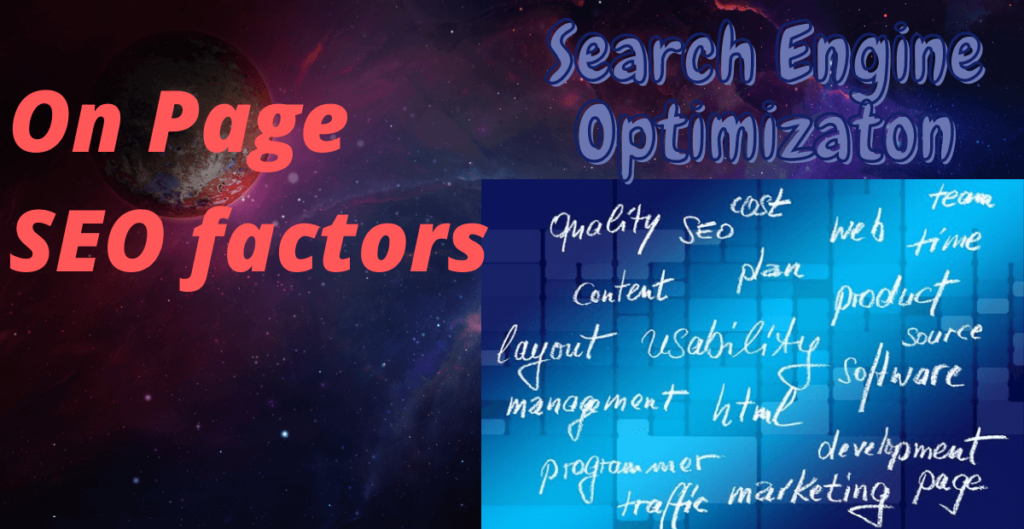
“Search Engine Optimization “(SEO) refers to the practice of optimizing web pages to improve search engine rankings and get organic traffic.
On-page and off-page SEO factors play a very important role to improve search engine rankings.
On-page SEO: In your own website, you can optimize like original code and content. It helps search engines to understand your website and its content, as well as identify whether it is relevant to a searcher’s query
Off-page SEO: The actions are taken outside of your website affect your site’s authority and trustworthiness by building internal links.
Let us see some on-page SEO factors.
-
E-A-T (Expertise, Authoritativeness, and Trustworthiness)
It is the framework that Google raters use to assess content creators, webpages, and websites as a whole.
- Expertise: means whether the author of a part of the content has the necessary skills and knowledge in their field?
- Authority: the source to answer the searcher’s questioned or is the other person who has a better source?
- Trustworthiness: Does the author give an honest presentation of the subject in their content?
-
Title Tag
It has little impact on organic rankings because when visitors search in search engines by some keywords, the title tag provides an initial clue to the search topic. Some missing, duplicate title tags will give a negative impact on SEO results.
-
Meta Description
Meta tags provide the description of the page which contains, which are displayed in the below title of the page. Meta descriptions help to improve the quality of the result, and ratings by clicking the title.
-
Links (URL)
There are three kinds of links.
Inbound links: Search Engine uses inbound links to determine how authoritative and relevant your content is.
Outbound Links: By using outbound links you can show that you are creating quality content for the visitors. Using outbound links by linking to relevant, confident sites in your slot.
Internal Links: Linking to your own content can help tie pages together for both Google and your visitors, making each page more valuable.
-
Header Tag
Header tags used to identify headings in the content. Header tags also indirectly impact your Google rankings of the page by mentioning keywords in the header tag.
-
Page Load Speed
Page speed is the leading SEO ranking factor. Slow loading sites give a bad user experience. A search engine wants to improve user’s experience of the web, so they will use sites that will load quickly for users. Fast loading web pages helps to improve user’s experience of the web.
-
Mobile Friendliness
Now a day’s most people use their mobile than desktop to browse content on the web. Mobile-friendliness means how a website looks and performs if someone opens your site on mobile. Mobile-friendly sites give a good user experience by using an open design that adjusts the content. If your web is not mobile-friendly it’s indirectly affecting your rankings.
-
Optimized content
It is the method of creating sure content is written in a way that it can reach the most important possible audience. The process of optimizing content should include ensuring associated keywords are present. Assigning one unique keyword in each page gives best practice for optimized content.
-
Image Optimization
Adding images to the content is the best way to attract viewers, but it also consumes more time to load a web page. So, using optimized images helps to increase ranking opportunities, better user experience, and also helps to faster load items.
-
The Length of the content
People always looking for elaborated information to understand the topic. Google looks always for informative content to rank first. SEO considers the length of the content to give preference ranking on the first page of the SEO.
-
Duplicate content.
Avoid the same content on various pages of your site. Duplicate content damages your ranking on SEO.write original content on all pages gives a positive ranking way.
-
Canonical tag
It tells if a URL is equivalent to another, helps to identify two pages having the same content. Suppose two URLs having the same content are unavoidable. By using canonical tags on your site you can duplicate content issues.
-
Sitemap
A sitemap helps search engines to find and index all pages on your website. It is the simplest and efficient way to convey to Google what pages your website includes.